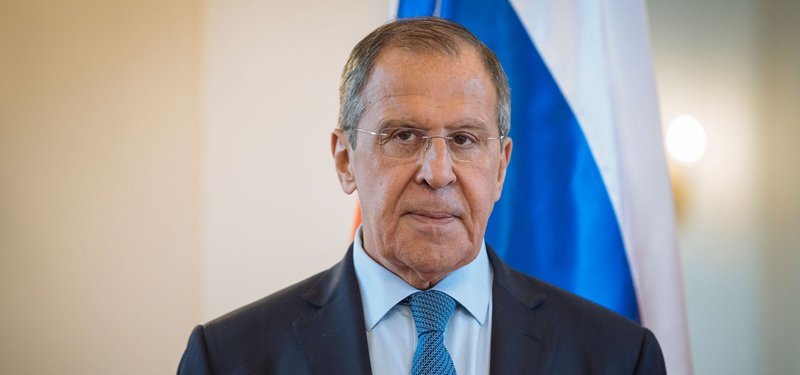
Russia urges Gulf nations to consider a joint security mechanism
"We have been suggesting to the Gulf countries to think about collective security mechanisms... starting with confidence building measures and inviting each other to military exercises," Russia's Foreign Minister Sergey Lavrov said in his comments during a security conference in New Delhi on Wednesday.
- World
- Reuters
- Published Date: 04:10 | 15 January 2020
- Modified Date: 10:01 | 15 January 2020
Russia's Foreign Minister Sergey Lavrov said on Wednesday Moscow has been urging Gulf countries to consider a common security mechanism for the region and it was time the world got rid of unilateral measures such as sanctions.
"We have been suggesting to the Gulf countries to think about collective security mechanisms ... starting with confidence building measures and inviting each other to military exercises," Lavrov told a security conference in Delhi.
Tensions in the Gulf have risen following the U.S. killing of Iranian military commander General Qassem Soleimani and a retaliatory missile attack by Iran on U.S. forces in Iraq.
"Since I mentioned about Persian Gulf, we are very much concerned about what is going in there," Lavrov said.
Iran's Foreign Minister Mohammad Javad Zarif is also attending the conference in Delhi that comes just a day after Britain, France and Germany formally accused Iran of violating the terms of its 2015 agreement to curb its nuclear programme, which eventually could lead to the reimposing of U.N. sanctions.
Iran's Fars news agency quoted Zarif as saying overnight that the use of the dispute mechanism was legally baseless and a strategic mistake.
Lavrov said unilateral sanctions were a problem in today's world.
"So the 21st century is the time when we must get rid of any methods of dealing in international relations which smack of colonial and neo-colonial times. And sanctions, unilaterally imposed sanctions, they are not going to work."
After pulling out of the Iran deal, the United States slapped sanctions back on Iran and has gradually increased its "maximum pressure" campaign targeting the Islamic Republic's revenues from oil, mining and other industries. British Prime Minister Boris Johnson called on Tuesday for U.S. President Donald Trump to replace the Iranian nuclear deal with his own new pact to ensure the Islamic Republic does not get an atomic weapon.
Trump said in a tweet he agreed with Johnson for a "Trump deal".
- Haftar drags Libya into further conflict after ditching diplomatic efforts
- World Economic Forum warns climate change top risk of new decade
- US House votes to send Trump impeachment to Senate for trial
- 'Egypt should immediately release Anadolu Agency employees'
- Regime airstrikes on market in rebel-held Idlib leave 15 dead

